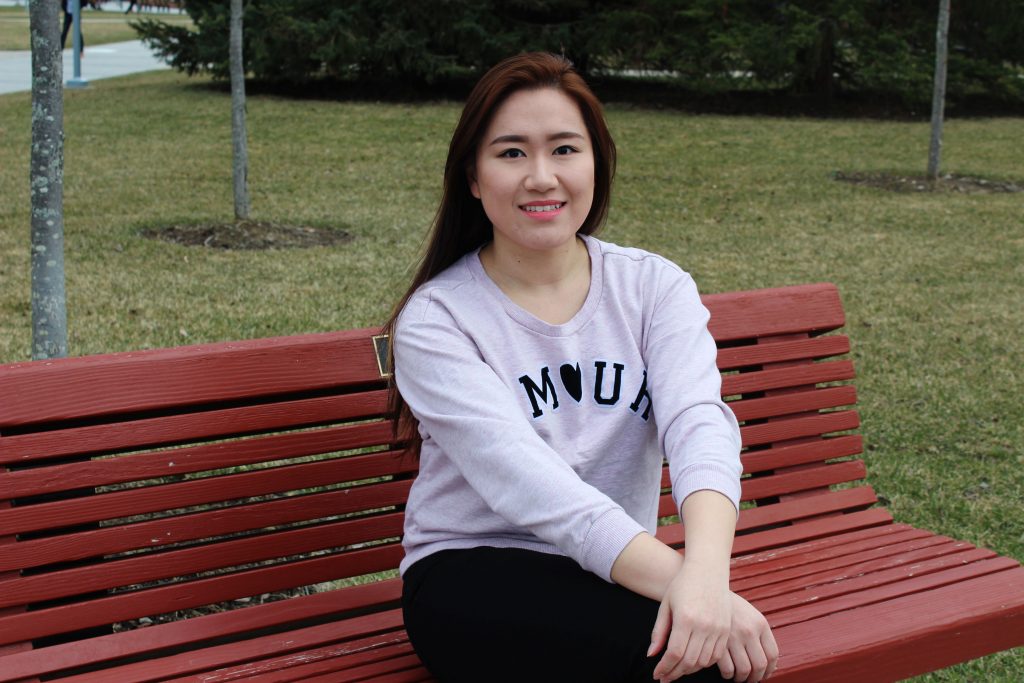
Irene Yip is a junior majoring in integrative neuroscience.
PRISM: What organizations are you involved in on campus?
Irene Yip: I’m currently the vice president of the Society of Asian Scientists and Engineers. I’m also the treasurer for the Hong Kong Exchange Square (HKES). In HKES, we have game shows and banquets. We have our street fair on April 21 at 7 p.m. in the Mandela Room. I ran for these positions because of my inner ambition. At the same time, it might be if I know I have the ability to, then why not run for those positions? When I came across these positions, I didn’t think I was qualified enough to be the president or vice president or anything. I think when you see yourself change as a person, you see yourself develop and push yourself, you realize that you are capable of so much more.
P: How do you feel that you are represented as an Asian American on campus?
IY: On campus, I feel like it is important to speak up. As an Asian American, many of the times, the way we are taught is different from others. The way I have been taught is if you have something, tolerate it and just move on. But when we do speak up, they feel like we are overreacting and I feel like that is something that shouldn’t be happening. Like when I see the media, and we’re reacting to something, the media coins it as us overreacting. I think we have to speak up a lot more because a lot of the suppressed issues are not going to get resolved.
P: What was it like to grow up in an Asian American household and then come to this campus?
IY: I was very fortunate to come from a diverse high school. I think [BU] has a diverse population on campus. I don’t think I’ve ever felt like I was not accepted here. Growing up Asian American is difficult. There is always that question of acting too American or if you act too Asian you get called a “fob.” You basically get called out for acting the way you are. It’s hard to understand what the fine line is between these two extremes. People always have questions, like “Where are you from?” and I would say New York City, but then they will be like “Where are you actually from?” or “Where are your parents from?” Some people take offense, but growing up Asian American, you grow used to it. Another thing is the stereotypes, for example, Asians are great at math — that is not true, I am terrible at math. Also, people were always like, you must want to be a doctor, lawyer or engineer. And then when you say “No, I’m a graphic design major,” you’re looked down upon. My parents asked me what I wanted to be from those options, and as I got older I learned to speak up to them. My parents now have no issue with me going to medical school, they are like, “Just be happy.” When I ran for vice president, I told my grandma. She told me you’re a girl, don’t do too much out of your role, only do what you have to do and let other people do what they have to do. It is difficult when my grandma grew up in a society where women were suppressed, but today’s society pushes women to do extraordinary things. We have a lot more opportunities and we should take them, with confidence. Just because we are females doesn’t mean we have to restrict ourselves, you should be able to take whatever role you want to have.
P: What advice do you have for Asian American students?
IY: Don’t let your parents stop you from what you want to do. If you know you want to go down a certain path, go for it. I think this applies to not just Asian Americans, but everybody. For Asian Americans, I would say don’t try to morph into somebody or something that you are not. If those people don’t accept you for who you are, then they are not worth your time.
PRISM has edited this interview for length and clarity.


